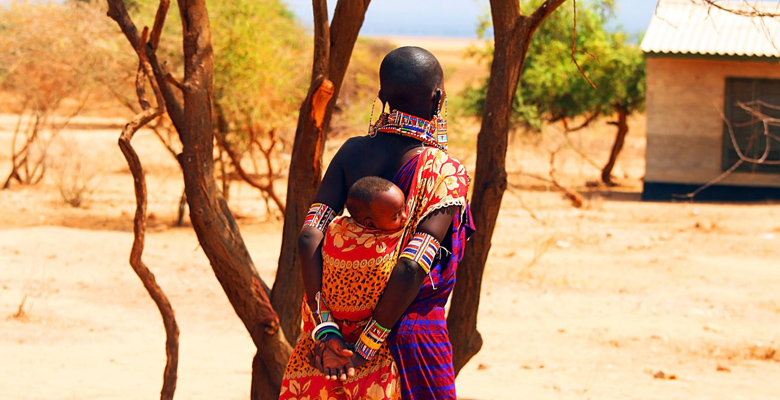Solving the evolutionary puzzle of menopause

The evolution of the menopause was ‘kick-started’ by a fluke of nature, but then boosted by the tendency for sons and grandsons to remain living close to home, a new study by Liverpool scientists suggests.
Menopause is an evolutionary puzzle, as an early end to reproduction seems contrary to the laws of natural selection, where passing on genes to the next generation is the main purpose of life. Yet female humans, and some other mammals, spend up to a third of their lives unable to reproduce.
To evaluate the most common evolutionary hypotheses for why females outlive their fertility, for the first time, researchers from LJMU and the University of Liverpool used a phylogenetic approach, mapping species with a post-reproductive lifespan (PRLS) across the evolutionary tree of mammals to investigate how PRLS has evolved and establish whether it is associated with particular features of relevant species.
One of the most popular explanations put forward for the menopause is the ‘grandmother hypothesis’, which suggests that women live long past reproductive age in order to help successfully raise their grandchildren, thereby strengthening the likelihood that their own genes are passed on. Others argue that the menopause offers no selective advantage and is an evolutionary fluke or ‘mismatch’ which arose because humans were designed for shorter lifespans but now live much longer.
This study, published in Biology Letters, used data from 26 different mammal species, including three different tribal or historical human populations, to test for the effects of lifespan, group size and male and female philopatry (the tendency to remain within a family group) on post-reproductive lifespan.
The researchers found that not one hypothesis alone could adequately explain why the menopause evolved, and suggest a new scenario called ‘non-adaptive origins followed by evolutionary tinkering' that unites the ‘mismatch’ and the ‘grandmother’ theories.
The results suggest that the menopause arose through a non-adaptive ‘mismatch’ between lifespan and reproductive span. Subsequently the researchers believe that in populations where males remained at home and females dispersed to reproduce, an adaptive benefit drove the extension of this post-reproductive period.
LJMU’s Dr Hazel Nichols, from the School of Natural Sciences and Psychology, said: “Conflicting views in science can be challenging to reconcile, but our study suggests that both adaptive and non-adaptive ideas may be correct - it's just that they apply to different parts of the evolution of this most unusual reproductive trait.”
Co-author Dr Kevin Arbuckle, of the University of Liverpool, added: “The results suggest the menopause arose through a non-adaptive ‘mismatch’ between lifespan and reproductive span. Subsequently we think that in populations where males remained at home and females dispersed to reproduce, an adaptive benefit drove the extension of this post-reproductive period.
“This adaptive benefit could have come from grandmothers looking after their sons and grandsons at home. As females tend to reproduce more reliably than males, this additional family support could have made it more likely that their grandsons successfully reproduced. “
The paper ‘Patterns of philopatry and longevity contribute to the evolution of post-reproductive lifespan in mammals’ is published in the journal Biology Letters.
The research has received widespread media coverage including in The Times, Telegraph, Daily Mail, Mirror and on ITV.


